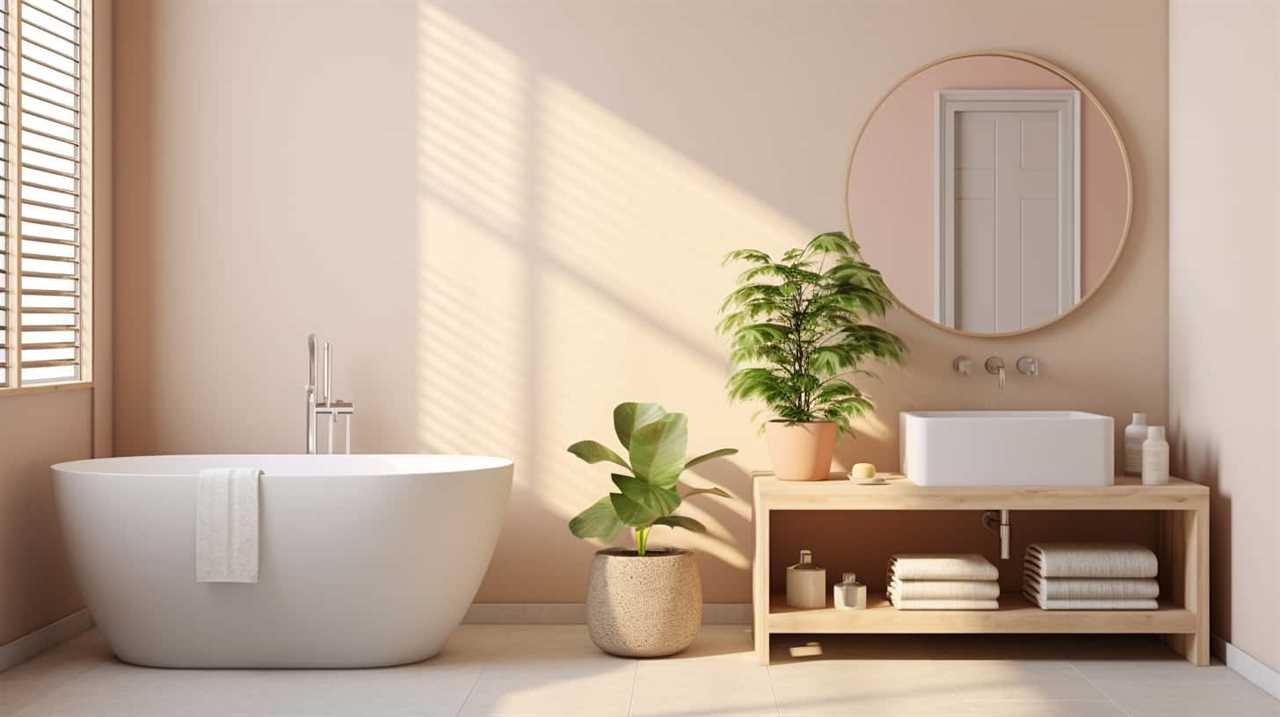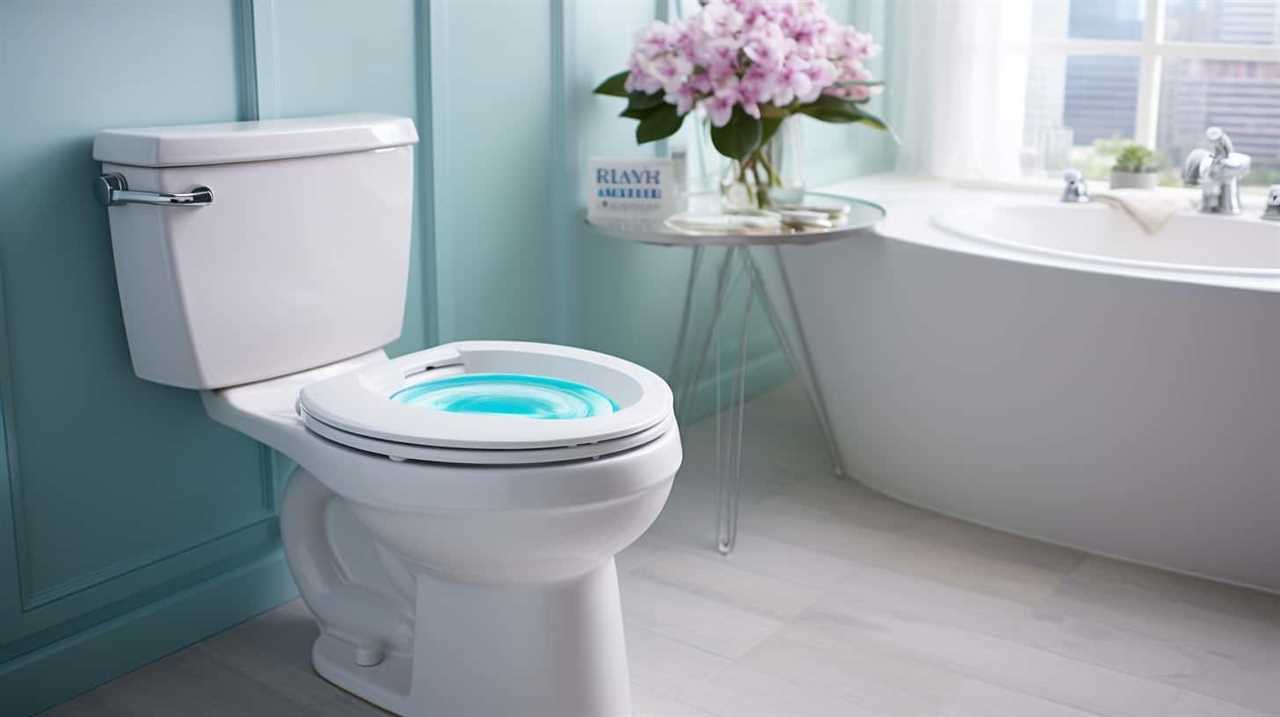Are you fed up with using bathroom scales that provide unreliable readings? We’ve all experienced this frustration. But don’t worry! In this article, we will guide you in selecting the ideal bathroom scale to meet your requirements.
From digital scales with advanced features to reliable analog scales, we’ll explore the pros and cons of each type.
So, if you’re ready to take control of your weight management journey, let’s dive in and discover which bathroom scales are right for you.
Key Takeaways
- Consider factors like accuracy, durability, and ease of use when comparing brands.
- Look for scales with a wide weight capacity and a clear, easy-to-read display.
- Features like automatic calibration and memory functions can enhance the weighing experience.
- Body composition analysis provides information beyond just weight, including body fat percentage and muscle mass.
Types of Bathroom Scales
There are various types of bathroom scales available on the market. When it comes to weight measurement units, you have options like pounds, kilograms, and stones. Each brand may offer different measurement units, so it’s important to compare different brands to find the one that suits your needs. Some scales even allow you to switch between units with a simple button press.

When comparing different brands, consider factors such as accuracy, durability, and ease of use. Look for scales that have a wide range of weight capacity and a clear, easy-to-read display. Additionally, features like automatic calibration and memory functions can enhance your weighing experience.
Now that we’ve discussed the types of bathroom scales, let’s move on to the features to consider.
Features to Consider
When choosing bathroom scales, we should consider the features that will best meet our needs. Here are three important features to consider:
- Body Composition Analysis: Many modern scales offer the benefit of body composition analysis, which provides valuable information beyond just weight. These scales can analyze metrics such as body fat percentage, muscle mass, and water weight, giving us a more comprehensive understanding of our health and fitness progress.
- Accuracy: Accurate measurements are crucial when it comes to bathroom scales. Look for scales that have been tested for accuracy and are known to provide consistent and reliable readings. This way, we can trust the data we receive and make informed decisions about our health and wellness goals.
- User-Friendly Design: Consider the ease of use and functionality of the scale. Look for features like large, easy-to-read displays, step-on technology for instant readings, and memory capabilities to track progress over time.
Considering these features will ensure that we choose a bathroom scale that provides the benefits of body composition analysis and the accuracy we need.

Now, let’s discuss the pros and cons of digital scales.
Pros and Cons of Digital Scales
Digital scales have become increasingly popular due to their convenient features and accurate measurements. There are several advantages to using digital scales.
Firstly, they provide precise and consistent readings, ensuring accurate tracking of weight loss or gain. Additionally, digital scales often have a sleek and modern design, making them aesthetically pleasing and suitable for any bathroom decor. Moreover, these scales usually come with useful features such as automatic shut-off and memory functions, making them user-friendly and efficient.
However, there are some disadvantages to consider as well. Digital scales can be more expensive compared to traditional analog scales. Furthermore, they require batteries, which may need to be replaced periodically. Additionally, some users may find that digital scales aren’t as durable or reliable as analog scales.

It’s important to weigh the advantages and disadvantages before making a decision on which type of scale to invest in.
Analog Scales Vs. Digital Scales
Let’s compare analog scales and digital scales to determine which is the better choice for your bathroom.
When it comes to accuracy, digital scales have the upper hand. They provide precise measurements and often come with features like weight tracking and body composition analysis.
On the other hand, analog scales are known for their simplicity and reliability. They don’t require batteries or complex calibration, making them low-maintenance. Plus, analog scales tend to be more durable since they don’t have delicate electronic components. However, they may not be as accurate as digital scales, especially when it comes to measuring small increments.

Ultimately, the choice between analog and digital scales depends on your personal preferences and needs.
Now, let’s move on to finding the perfect fit for your bathroom.
Finding the Perfect Fit
Moving forward, we can explore how to find the perfect bathroom scale that suits our needs and preferences.
When it comes to finding the right weight range, it’s important to consider your current weight and future weight goals. If you’re just starting your weight loss journey, a scale with a wide weight range might be more suitable. On the other hand, if you’re already at your goal weight and looking to maintain it, a scale with a narrower weight range could be sufficient.

Accuracy is another important factor to consider when choosing a bathroom scale. While more expensive scales tend to be more accurate, it’s essential to find a balance between accuracy and price. Look for scales that have been tested and calibrated for accuracy, and read reviews from other users to get an idea of how accurate the scale is in real-world use.
Frequently Asked Questions
How Accurate Are Bathroom Scales in Measuring Body Weight?
Factors affecting the accuracy of bathroom scales include the quality of the scale, surface stability, and user error. Pros of using bathroom scales for weight tracking include convenience, affordability, and easy accessibility. Cons include potential inaccuracies and variation in readings.
Can Bathroom Scales Measure Body Fat Percentage?
Are body fat percentage measurements from bathroom scales reliable? Factors like hydration levels, muscle mass, and age can affect accuracy. However, advancements in technology have made some scales more accurate, providing a convenient tool for tracking body composition.
Are Bathroom Scales Suitable for People With Mobility Issues?
Accessibility features in bathroom scales for people with mobility issues include large, easy-to-read displays and non-slip surfaces. However, alternatives such as smart scales that sync with mobile devices or wearable fitness trackers may be more suitable for individuals facing mobility challenges.

Can Bathroom Scales Be Used by Multiple Users and Track Their Individual Measurements?
Yes, bathroom scales can be used by multiple users and track their individual measurements. This eliminates privacy concerns with shared scales and offers the benefits of personalized data for each user’s progress and goals.
Do Bathroom Scales Require Any Special Maintenance or Calibration Over Time?
Maintenance tips for bathroom scales include regularly cleaning the surface, checking for proper battery life, and ensuring the scale is on a level surface. Calibration is important to ensure accurate measurements and can be done using a calibration weight or following the manufacturer’s instructions.
Conclusion
In conclusion, when it comes to choosing the perfect bathroom scale, it’s important to consider the different types available and the features they offer.
While digital scales have their advantages, such as accuracy and additional features, analog scales can still be a reliable option.

Ultimately, finding the perfect fit depends on personal preference and individual needs.
Like finding the missing piece to a puzzle, selecting the right bathroom scale can contribute to a healthier and more informed lifestyle.









